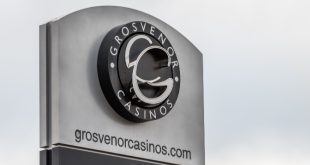
One of the industry’s newest leaders, Marathonbet’s CEO Viktor Hoffman details to SBC why betting stakeholders have to challenge industry legacy values and operations to meet current and future consumer demands.
Hoffman, a speaker at the Betting on Sports Conference (15-16 September London Grange Hotel), tells SBC readers that while some operators my find comfort in traditional operations, tomorrow’s winners will accelerate change…
_____________________
SBC: Viktor thanks for this BOS interview. You will be discussing future impacts which will affect the betting industry at BOS. In its current context what consumer betting trends have you witnessed and how do you see these evolving in the coming years?
Viktor Hoffman: Thanks, good to be part of the discussion. We are seeing increased demand for more mobile in-play betting choice and minute markets with instant gratification, so we must re-align our platform focus from desktop and mobile sites towards apps to optimize the UX to meet these demands.
Live sports streaming can potentially enhance this in-play experience as devices and connectivity improve which gives our various mobile projects yet another competing constraint regarding bandwidth and performance of our core systems and components.
Payments is another driver of transformational change impacting mobile behaviour, user journeys, and betting trends. Customers are adopting mobile wallet apps, branded wallets, smartwatches and devices with new payment capabilities. There is a lot of movement in this area, especially in mCommerce and punters will be asking why they can’t use their new, alternative payment methods when betting.
Social trends indicate more commercial directions for this type of media, again driven by mobile usage, through the addition of buy buttons within social apps. This trend can be seen in other media too, in the increase of direct bets through APIs with odds comparison partners for example.
SBC: Marathonbet is one of the newer brands in the saturated UK betting market. From an innovation and user engagement perspective how have you challenged this marketplace with a large number of established legacy operators?
VH: Firstly, I think the rules of the game have changed or are changing at the moment. Today’s customers are first and foremost consumers of information and experiences. They have more information than ever before and therefore more choice of experiences. Customers are overloaded, not just by our industry (although we like to imagine that we have their undivided attention), but even though they are bombarded they are compulsively seeking more information. One effect we are all seeing in the industry is that greater marketing and bonus cost are yielding lesser and lesser result.
The established order of these legacy operators, sped up by recent mega-mergers, is leaving us with two distinct types of betting companies. The top tier incumbents who are at risk of becoming bloated, slow, too cautious, bureaucratic and change resistant, spending more time on integration than innovation – and insurgents or challengers, lean start-ups, underdogs, whatever you want to call them, who move faster and love change and welcome it as opportunity.
At Marathonbet we have a long-standing corporate culture of always thinking and acting like the underdog because it has a lot of advantages. As CEO I nurture and elaborate on this culture of the underdog and build our group strategy around it because I think it’s the only viable model for the foreseeable future of accelerating change. It creates a spirit of innovation not just in product but also in new approaches to every aspect of the business. We continue acting like the hungry little company that fought its way to tier one market leadership in Russia in the first place.
Marathonbet can offer unique experiences and has a proprietary, small margin sportsbook powered by in-house risk management. We are very well set to take the largest bets and attract big volume through having the best odds and the best depth of niche markets. We are very hungry and will continue to challenge the incumbents here in the UK and globally.
By the way, the top tier market leaders are also at their best when they act small, not as incumbents but as hungry underdogs. They are watching and learning from the success of the challengers, starting incubator programmes and hold hackathons to foster the feeling of being a start-up.
SBC: Due to external impacts, the industry is entering a period of legal and fiscal change, what impact do you feel this will have on overall betting product innovation and commercial development?
VH: Regulatory and fiscal change can put pressure on our legacy systems, adding to the technical debt and product roadmaps, impacting trading models and ultimately the bottom line. There is a perception that there is an opportunity cost of spending finite resource on making systems compatible rather than innovating. It can also create challenging barriers to entry into new regulated markets and make us think twice about geographical diversification. Having said that, I still believe we need to look at change as an opportunity in this context as well; an opportunity to innovate in how we unify and scale our platforms, how we deliver projects in parallel and optimize internal processes to meet technical compliance requirements and social responsibilities. As always, the most adaptable will win.
SBC: In 2016, we have seen betting leadership place a higher emphasis on new industry dynamics. Assessing future industry developments, what current legacy values do you feel market innovation will challenge?
VH: I look at it this way. The established industry dynamic has three basic tiers. The top tier has a handful of nationally known, mass-marketed, traditionally retail-focused brands. The middle tier has maybe a dozen ‘me too’ brands. The bottom tier has lots of smaller but more differentiated, specialized and localized brands. But here’s the thing, today’s punters have changed the way they move between these tiers. The same consumers who are still going to the top tier are also going to the bottom tier where there are more niche offering and more differentiation. The middle tier is being crushed or swallowed up in consolidation waves. Most life and innovation is found at the top and the bottom tiers.
Also, brands in the top tier do marketing very differently from the bottom tier. At the top you need to bring more and more money to break through the noise but to lesser effect. At the bottom tier success depends on a growing cynicism of mass marketing – it is basically working against the principle of economies of scale and ignites a bonus and ATL war; the top tier is spending more and more on every new customer acquired because customers’ resistance is getting stronger and loyalty weaker. To make it worse, the customer doesn’t stay bought, and we have seen a rise in very sophisticated bonus abuse.
The one-size-fits-all approach doesn’t work anymore because today’s information consumers are convinced that if they just keep looking and switching, they’ll find a ‘one-size-that-fits-just-me’ operator. Moreover, they share this quest with anyone who will listen; instantly informed customers who are constantly communicating – the most powerful advertising medium for underdogs in history.
SBC: With all operators placing a higher emphasis on intelligence-led dynamics. How will this impact the development of leadership and management within operators? Ultimately at operator level how will decision making change?
VH: It is not surprising that we talk a lot about BI, Big Data and the IoT at the moment. When we harness the increasingly inter-connected data we generate correctly, we can get better at maximizing mutual value for customers and shareholders. The more knowledge value and meaningful insights we get the greater the experience we can offer to our customers. It drives differentiation, innovation and competitive advantage in areas such as media buying through attribution modelling of clickstream data, trading through predictive modelling and machine learning, personalization through propensity modelling, behavioural analytics and preference segmentation and off course new product and feature development through leveraging insights that lets customers interact with us in new ways and at new touchpoints.
The holy grail within this intelligence-led dynamic is having a single version of the truth, in real time, accessible to the company via self-service so that everyone in the organization is able to make data-driven decisions in their day to day jobs. These new possibilities require leaders that understand how to turn it into a competitive advantage. The leadership must now effectively communicate and action the insights and make it all part of the mind-set, vision and strategy of the business. Under the right management, the data enables a test and learn approach to almost anything and accelerates learning. Data and feedback is the fuel for Agile and Lean, it can be the foundation for the underdog strategy mentioned earlier by creating meaningful differentiation, customization, and personalization. It gives you the ability to iterate to success through marginal gains that are seen instantly and when mistakes happen it helps you take corrective action promptly, i.e. learn and fail faster.
An essential job for any leader, in my opinion, is to create more leaders and actionable data can also help you scale leadership and decision-making.
SBC: Finally, with regards to leadership tackling industry change, what do you want BOS delegates to take away from your sessions?
VH: There is comfort in tradition, but these are the days of accelerating change. Consider the cost of ignoring it, resisting it or be perceived by customers to defend against it. Sometimes the safest thing to do is the scariest; take some risks based on the insights you have, innovate, think big, act small and learn rapidly. Even if you are the market leader, act like the underdog.
Regarding leadership tackling change I’d say it’s important not to fear change or mistakes, we learn, we communicate, we adapt. We try to create leaders everywhere and work towards self-organizing structures because they are nimbler.
We know we must change the way we do things to keep up, the only question is how and when.
___________________
Viktor Hoffman CEO – Marathonbet
Future industry impacts and innovations will be discussed at the upcoming Betting on Sports Conference (15-16 September – London Grange Hotel). Click on the below banner for more information!










